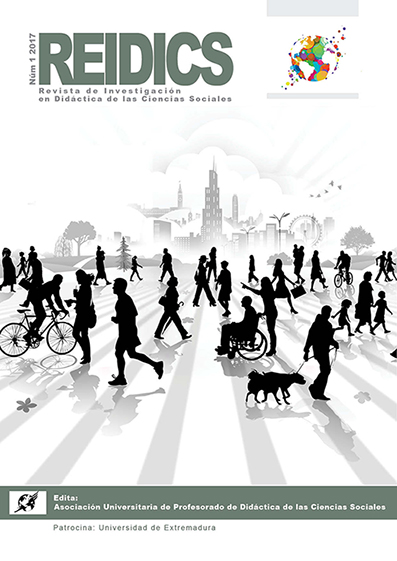Relevant social problems in the primary classroom: the "cartography of the controversy" as a method.
DOI:
https://doi.org/10.17398/2531-0968.01.24Keywords:
Curriculum design; educational research; coaching; teacher training; teaching social sciencesAbstract
Nowadays one of the main goals in Social Education is to develop social and critical thinking in students and with this aim in mind it becomes indispensable to use social issues. Hence, the aim of our research is firstly to analyse how appears the topic “water” in the Almería’s local press, a province where water shortage exists and second, to determine if the topic of water constitutes a controversial issue useful in the educational context. We selected water as our research topic for several reasons: on the one hand, due to its high presence in the Primary Education curriculum which includes this item in the Social Science area and in the Natural Science area as well. On the other hand, this topic offers the possibility to be treated from an interdisciplinary perspective.
To conduct this research we have used a mixed methodology combining quantitative and qualitative approaches. The “constructed week” and “witness news” methodologies were used as a quantitative approach and have allowed us to detect the first features of the topic water as an issue. Furthermore, using a qualitative approach, we have used the “mapping controversy” methodology that consists of an adjustment of the Theory of the Actor Network. We have obtained two maps as results of our research, where the topic of water is showed as an issue or a controversial theme and links established among the different indicators of the controversy are also shown in the maps. Both maps can be considered as powerful educational tools due to the fact that they are useful to study different curricular content through news methods and, at the same time, they allow to develop social, critical and divergent thinking in students.
Downloads
Published
Issue
Section
License
Copyright (c) 2024 Naira Díaz Moreno, María del Mar Felices de la Fuente

This work is licensed under a Creative Commons Attribution-NonCommercial-ShareAlike 4.0 International License.
Aquellos autores/as que tengan publicaciones con esta revista, aceptan los términos siguientes:
- Los autores/as conservarán sus derechos de autoría y garantizarán a la revista el derecho de primera publicación de su obra, el cual estará simultáneamente sujeto a la Licencia de reconocimiento de Creative Commons 4.0 BY-NC-SA que permite a terceros compartir la obra siempre que se indique su autor y su primera publicación en esta revista.
- Los autores/as podrán adoptar otros acuerdos de licencia no exclusiva de distribución de la versión de la obra publicada (p. ej.: depositarla en un archivo telemático institucional o publicarla en un volumen monográfico) siempre que se indique la publicación inicial en esta revista.
- Se permite y recomienda a los autores/as difundir su obra a través de Internet (p. ej.: en archivos telemáticos institucionales o en su página web) antes y durante el proceso de envío, lo cual puede producir intercambios interesantes y aumentar las citas de la obra publicada. (Véase El efecto del acceso abierto).
- Los autores y autoras han respetado la política de autoría de esta revista.







